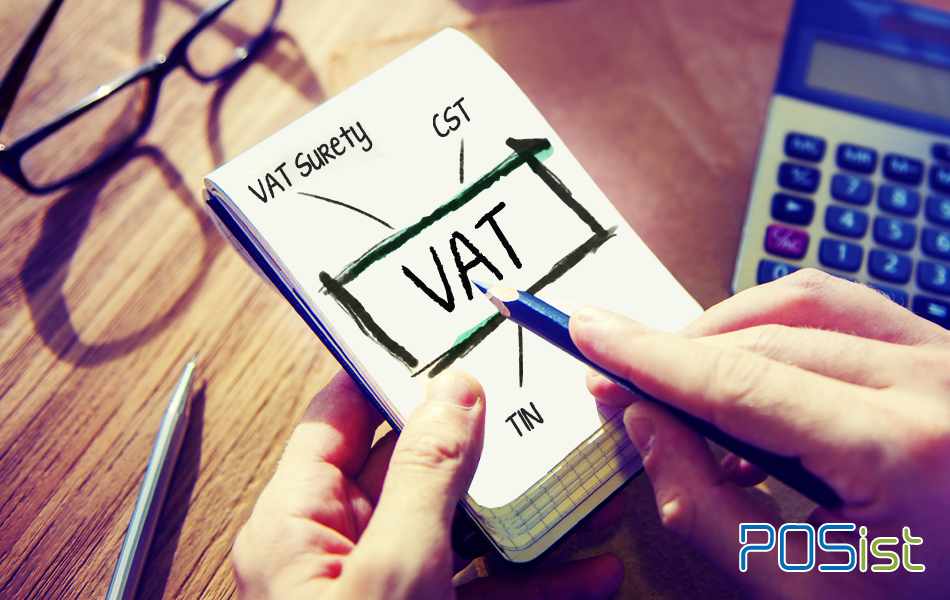Getting the VAT Registration of your restaurant is one of the most important legal aspects that should be taken care of before you open your restaurant business. Value-added Tax (VAT) is a type of tax which is charged with the sale of goods within a state. The restaurants whose annual turnover exceeds Rs 10 lakh are liable to get VAT registration done under which they have to collect and pay the VAT to the state government. Food chains which operate in more than one state are liable to be registered under Centre Sale Tax Act as well. The fee for getting the registration is Rs 500 in the form of court stamp duty.
VAT Registration is a mandatory procedure that every restaurant owner needs to follow before opening a restaurant. To know the step by step process of opening a restaurant, click here.
VAT Registration Procedure For Restaurants
There are primarily two types of VAT registrations; with composition scheme, and without composition scheme (regular registration). Restaurants or food takeaways which have less than Rs 40 lakh turnover and which operate only in one state come under the composition scheme. Also, it is also not liable to charge VAT to its customers on the bill and invoice while it has to pay one percent of its total turnover.
The VAT registration process is broadly divided into five steps:
- Documentation
- An arrangement of VAT surety
- CST registration file (if required)
- TIN registration
- Final regulation after the visit of the VAT inspector.
Documents Required For VAT Registration
The following documents are required to get the VAT registration done for your restaurant business.
For Proprietorship/Partnership
- Identity Proof of Proprietor/of all Partners
- 3 Photographs of Proprietor/of all Partners
- Address Proof of Proprietor/ of all Partners
- Address Proof of Proprietorship/ of Partnership
- If the property is self-owned- a copy of Electricity Bill / Property Tax Receipt / Sale Deed
- If the property is rented- NOC from Landlord, Rent Agreement, Electricity Bill / Property Tax Receipt / Sale Deed of Landlord
In case of Partnership
- PAN Card of Partnership Firm, Copy of Partnership Deed
- Bank Account Details and Latest Bank Statement of Proprietorship/Partnership
- List of Goods to be dealt in along with goods required for packing if any
For Company
- Identity Proof of all Directors
- 3 Photographs of all Directors
- Address Proof of all Directors
- Address Proof of Company
- If self-owned then a copy of Electricity Bill / Property Tax Receipt / Sale Deed
- If rented then NOC from Landlord, Rent Agreement, Electricity Bill / Property Tax Receipt / Sale Deed of Landlord
- Bank Account Details and Latest Bank Statement of Company
- Memorandum & Articles of Association
- Board Resolution
- List of Goods to be dealt in along with goods required for packing if any
VAT Surety
To apply for the TIN or VAT registration, it is compulsory to provide the surety of Maximum Rs. 1,00,000 and Minimum Rs. 50,000 to the VAT Department, depending upon the state where you plan to open your restaurant. There are various modes in which surety can be provided. Usually, it is offered by another registered dealer or bank guarantee. However, if you fail to get a registered dealer surety, you can also get in cash deposits with the VAT department and fixed deposits. Cash deposits vary from state to state. The surety amount of Rs 1, 00,000 can be reduced Rs 50,000 if following documents can be provided.
- Proof of ownership of principal place of business Rs.30,000
- A copy of the passport of proprietor/ managing partner Rs. 10,000
- A copy of Permanent Account Number in the name of the business allotted by the Income Tax Department Rs. 10,000
- A copy of last electricity bill Rs. 10,000
- A copy of last telephone bill Rs. 5,000
VAT Registration Online Process
After collecting all the documents and surety bond, you need to fill the form online.
Once you have completed the application and submitted (uploaded) the form, the acknowledgment containing the date and time for appearing before the Registering Authority is generated. The code/designation of the Registering Authority is also provided.
This acknowledgment can be saved and should be printed for producing before the Registering Authority. You should also save the downloadable VAT and CST e-application form of registration and take out a print of it.
The proprietor, the partner, or the director, may be required to sign at appropriate place/places on the print out of the application and submit it to the concerned Registration Authority at the time of verification, with an attested photo on given date and time along with relevant documents. In the case of voluntary registration, the signature of “introducer” should also be obtained.
If the application is correct and complete in all respect along with relevant documents, then the Registering Authority generates the TIN after verification.
Registration certificates are printed and issued to the dealer on the appointed day. In case the application is eligible for granting registration, then the date of uploading the application shall be considered as the date of application to determine the effective date of VAT RC.
In case the dealer has uploaded CST application also, then to determine the CST RC effective date, the date of uploading CST application is considered as the application date.
VAT Registration Online Links For Major Locations
Stay tuned to The Restaurant Times for the latest restaurant industry news, tips, and trends.

















